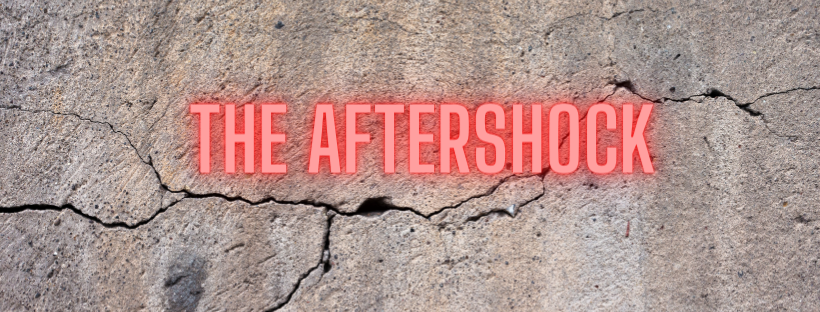There are real consequences to speaking up.
In my work to support more people to “be braver“, to “say it and stay with it,” I cannot ever reassure someone that there will not be ramifications. The way people perceive truth tellers at the time of their truth telling is never favorably (at least not in my experience).
Therefore we have to orient speaking up towards our own liberation, to be in alignment our own moral compass first. Speaking up is boundary setting. It is saying, “This is not okay.”
And sometimes, your only audience may be you.
Right now back living in my home state of Nebraska, I’m often sitting with the loneliness of truth telling, the grief of knowing how some relationships are forever changed by my truths. I’m sitting with how conditional “belonging” is when people are mapped to oppressive systems and I’m so very pained by the violence of that reality.
What we can learn about violence in our families has direct relevance to our organizations and in our institutions. We can learn about the conflation or the lack of differentiation between conflict and abuse. We can learn about how people reject others’ experiences of trauma. We can learn about using “differing opinion” arguments to center dominant groups. We can learn about how we tokenize or marginalize the most vulnerable and minimize or deny their experience. We can learn what it takes to disconnect us from each other and remain separate.

Breaking cycles is hard work. It’s generational work. As people who are committed to and paid to(!) bring about more justice and equity in the world is – I dare say – it is our professional work.
We risk losing “credibility” and “legitimacy” among our peers. We may lose our jobs or salaries. We may lose our friends. We may lose opportunities and access to resources, and the convenience that comes with that. We will definitely lose comfort.
Luckily, along the way, I learned that the aftershock, or pushback, is evidence that you’ve hit a nerve. Pushback is evidence that those in power are affected. It is protection of privilege. Pushback is…inevitable.
So we must prepare for it, plan that it will happen. We must call upon our allies to support us. We must utilize all that is available to us to shore up our resolve to carry on – be it animal, spiritual, or material. We must rest and recover when it is done.
And in doing so I remind myself of something my friend Katherine often says, “Name it all good.”
But wow would I rather run! I would rather drop bombs and fly away. I would much rather judge, condemn, and punish.
So here I am, sitting with this perplexing, perhaps unanswerable question posed by bell hooks: “…how do we hold people accountable for wrongdoing and yet at the same time remain in touch with their humanity enough to believe in their capacity to be transformed?”
Telling the truth must always include this question. Without it, my truth telling and my boundaries and people’s reactions to them will serve to reinforce my individualism, my isolation, or any loneliness I’m feeling.
Remembering not to take the aftershocks personally, remembering that disconnection is a choice, and one that we sometimes have to make is heartbreaking.
There are real consequences to speaking up. The next question, therefore, becomes: What price are you willing to pay?
***
Related Posts
Willing to say what needs to be said
Don’t you talk about my…that way…
Brainwashed by the Do-Gooder Industrial Complex
Does aid need a 12-step program?

